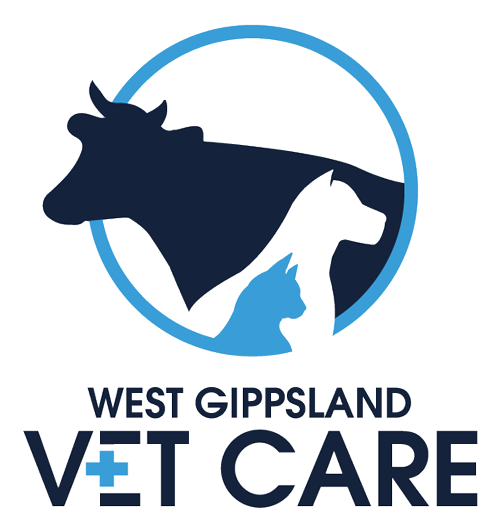Book an appointment with one of the most experienced veterinarians in Gippsland today!
Planning for Surgery
Reducing stress
If you think your pet will be anxious about spending time with us please let us know prior to your visit as we may be able to offer advice and calmatives in the form of medications, supplements or pheromone sprays that will ease anxiety and make their experience better overall.
Reducing pain
Some surgeries (eg orthopaedic surgeries) are associated with more pain than others and with forward planning we can put pain relief measures in place prior to the day of surgery so that your pet has a better experience which can help with a better outcome.
Knowing what to expect
Prior to surgery there will be a 10 to 15 minute consultation with the vet. During this consult your pets medical history is taken, details of the procedure will be discussed (including risks, recovery time, approximate costs and aftercare) and a thorough physical examination of your pet will be performed. This consultation provides the opportunity to ask questions and discuss concerns you may have regarding the procedure. Sometimes other issues will be raised such as the opportunity to do dental work or perform lump removals and the vet can also discuss these options.
Making anaesthesia safer
In many cases you will be offered some tests prior to an anaesthetic and surgery that allow us to form a better picture of your pets health so that we can make better decisions regarding the surgery and anaesthetic. This may involve having a Pre-Anaesthetic blood test to assess kidney and liver function, and rule out dehydration, anaemia, inflammation or low blood sugar. These Pre-Anaesthetic blood tests give us a general overview of your pets health and may in some cases lead to further discussion about what is the best plan for your pet, and sometimes other more specific tests may be recommended.
Having intravenous fluid during anaesthesia (ie being on an IV drip) is recommended for many procedures, particularly those involving older pets, unwell pets or those undergoing lengthy procedures. All pets will have a shaved area of fur on their leg where their IV catheter is placed for intravenous injections. This catheter can also be used to attach the intravenous fluid line. We have electronic pumps that deliver a calculated amount of fluid during the anaesthetic to help your pet maintain good blood pressure and better cope with the anaesthetic drugs resulting in a faster recovery.
The protocol
At the time of booking, an admission time is given and you will be asked to fast (ie not feed) your pet for a certain period prior to the admission time. This usually just means giving dinner the night before and no breakfast that morning, but still leaving them with water access until the time of admission. Sometimes this advice varies depending on age, size, species or illness and we will advise you of your pets particular requirements in these cases.
The main reason for fasting is to greatly reduce the chance of vomiting during the recovery period of anaesthesia when the swallowing reflex is not as strong and the risk of inhaling the vomit is higher.
Preparing for surgery
You may wish to bathe or groom your pet prior to the day of surgery as afterwards their surgical wound will usually need to be kept dry for 10 days minimum (longer in some cases). The surgery site will usually have a large area of hair clipped short so that hair doesn’t contaminate the surgery (as we don’t want any foreign matter getting in the wound) and so that the skin can be cleaned with antiseptic (to remove bacteria).
Think about any other procedures that you may prefer your pet to have done while under anaesthetic, such as nail clipping, ear checks and anal gland expression or grooming and let us know your preferences.
After the procedure
A nurse will call you once your pet is awake to arrange a discharge appointment time with a vet nurse or vet. If you have a particular time in mind just let us know at admission. At the discharge appointment we will discuss home care, medications, and answer any questions you may have. Most pets need to be kept clean, dry, quiet and confined for 10 days.
Restraint
For everyone’s safety please place your dog on a lead and your cat in a carry cage. We have both leads and carry cages available.
Payment
Unless arranged prior to surgery, payment is required in full before your pet is discharged. We have credit card, EFTPOS and Zippay available.
Book an appointment with one of the most experienced veterinarians in Gippsland today!
West Gippsland Vet Care Warragul
West Gippsland Vet Care Drouin
We have a 24/7 Emergency Service
(Available to Existing Clients Only)
We have a 24/7 Emergency Service
(Available to Existing Clients Only)
Visit Us
Opening Hours
Mon-Fri: 8:00am - 5:30pm
Sat: 8:30am - 12pm
Visit Us
Opening Hours
Mon-Fri: 8:00am - 5:30pm
Sat: 8:30am - 12pm
West Gippsland Vet Care Warragul
We have a 24/7 Emergency Service
(Available to Existing Clients Only)
Visit Us
Opening Hours
Mon-Fri: 8:00am - 5:30pm
Sat: 8:30am - 12pm
West Gippsland Vet Care Drouin
We have a 24/7 Emergency Service
(Available to Existing Clients Only)
Visit Us
Opening Hours
Mon-Fri: 8:00am - 5:30pm
Sat: 8:30am - 12pm
Sign up for our Newsletter
Contact Us
For appointments, use our online booking feature or give us a call and speak to one of our friendly receptionists.
